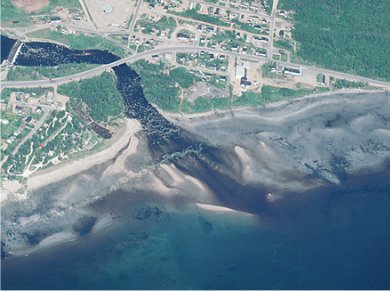Mixing brine and fresh water could represent a new approach to power generation based on the thermodynamic principle of entropy.
Entropy increases when two solutions of different salt concentrations are mixed – a thermodynamic change that could generate electrical energy. Dutch technologists suggest that a sandwich of porous “supercapacitor” electrodes, ion-exchange membranes, and a spacer would represent a commercially viable approach for power production. The system could readily be scaled for generation purposes. 1000 L of river water mixing with the sea gives 2.5 MJ. Tapping all freshwater streams across the globe would amount to 2 terawatts of power, enough to satisfy current worldwide electricity demands.
- Direct Power Production from a Water Salinity Difference in a Membrane-Modified Supercapacitor Flow Cell
B. B. Sales, M. Saakes, J. W. Post, C. J. N. Buisman, P. M. Biesheuvel, H. V. M. Hamele,
Environ. Sci. Technol. 2010, 44.
DOI: 10.1021/es100852a




